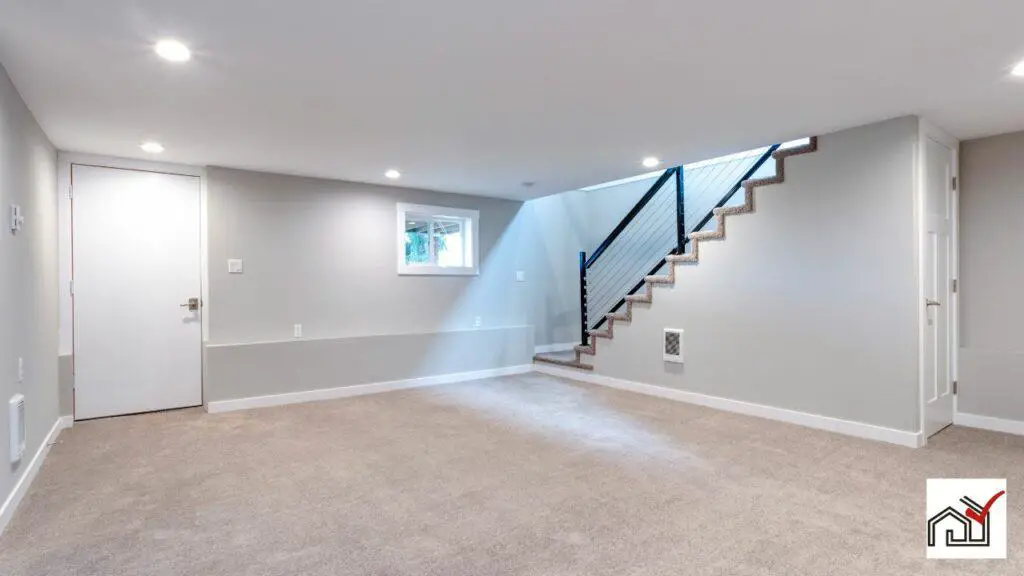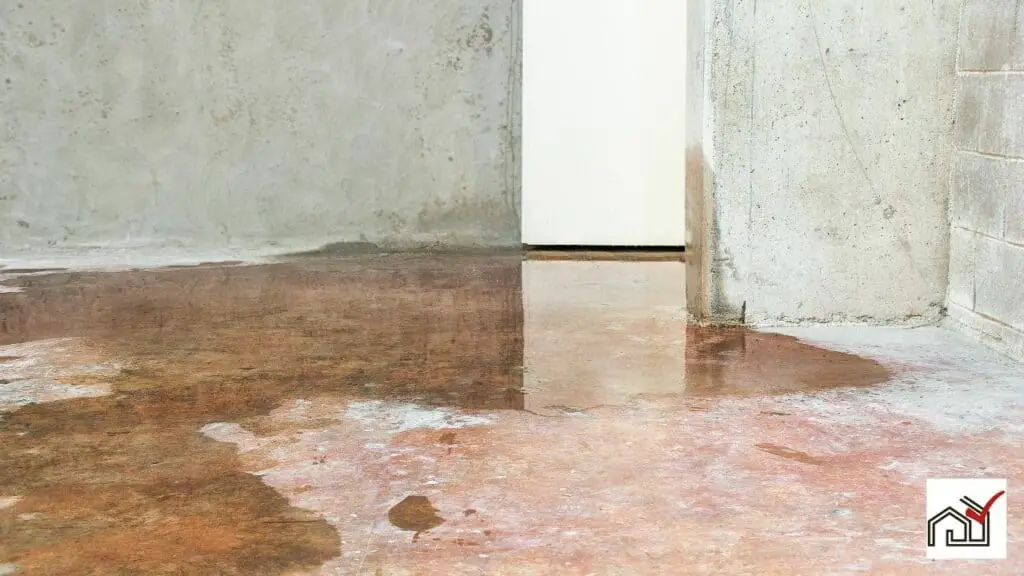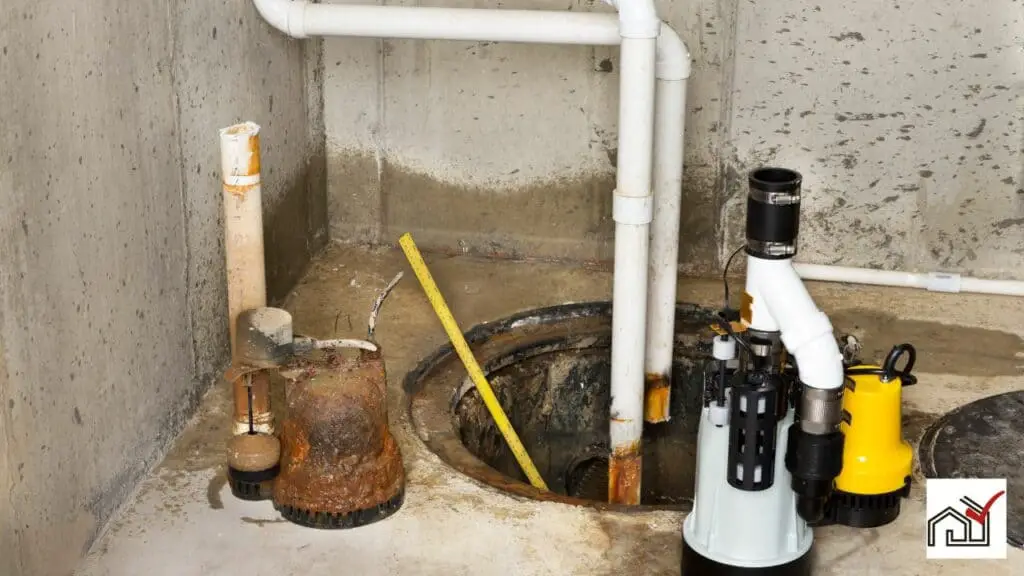When deciding if the basement floor should match the upstairs, consider both the design and practical needs.
Matching floors may create a unified look and potentially increase home value, but basements often require durable and moisture-resistant flooring.
Evaluate the pros and cons to choose the best option for your home's design and functionality.
Considering Design Continuity
To maintain design continuity, it's beneficial for basement flooring to match the rest of the house, creating a unified look. While not mandatory, aligning the flooring style, color, and material contributes to a cohesive aesthetic, especially where both levels are visible, like at a staircase.
However, basements have unique needs due to higher moisture levels. Homeowners should consider these factors and may choose materials like luxury vinyl plank or laminate that resemble upper-floor materials but are moisture-resistant.
Using the same materials throughout the home can make spaces seem larger. It's important to address moisture issues with proper waterproofing and to seek professional installation to ensure the flooring's durability and the home's overall design coherence.
Evaluating Basement Functionality
Assessing basement functionality is critical for selecting appropriate flooring that meets its specific use and handles moisture and wear. Basements can be used as family rooms, storage spaces, or gyms, influencing flooring choice. Floors that work in other parts of a house may not suit the basement's higher moisture and potential for water leaks.
Basements differ from other home levels due to variable moisture and less natural light. Carpet or hardwood may be unsuitable for this environment. Instead, laminate, vinyl, and luxury vinyl plank (LVP) are often suggested for their moisture resistance when sealed. Concrete floors can also be effective if properly finished and sealed.
Before installing flooring, any existing moisture issues should be resolved. This may involve waterproofing and installing a vapor barrier to prevent future moisture problems. Professional installation and ongoing maintenance contribute to the longevity of basement flooring.
Ultimately, while maintaining a consistent look with upstairs flooring may be appealing, practicality and durability are paramount in choosing basement flooring. The right selection will offer an aesthetically pleasing, moisture-resistant, and long-lasting basement floor.
Weighing Aesthetic Preferences
When deciding on home aesthetics, it's important to consider that aligning the basement floor with the upstairs may improve the overall look and feel of the house. Aesthetic choices are subjective and differ with each homeowner. Deciding on whether to continue the same flooring into the basement depends on personal preference and the intended design.
For some homeowners, a uniform look between floors is important, potentially making the space appear larger and more integrated. This can also make it easier to choose furniture and decorations, as the consistent flooring acts as a versatile base.
Conversely, the basement's function might call for a different type of flooring. For example, a playroom or gym may need more resilient and low-maintenance materials compared to what's upstairs.
It's important to seek advice from design experts, contractors, or to visit flooring showrooms to find options that suit the use and aesthetic goals of the space. These professionals can offer insights on how flooring choices may affect home value and appearance.
Cost and Material Considerations
When choosing basement flooring, homeowners should consider both cost and material characteristics. Laminate flooring is durable, moisture-resistant, and cost-effective, making it suitable for basements. It can also replicate wood or stone, offering design flexibility at a lower cost.
Vinyl and luxury vinyl plank (LVP) flooring are popular for basements because they are waterproof and easy to maintain. They can handle basement humidity and water exposure well. LVP, such as HD plus renewed hickory, combines the look of hardwood with the benefits of vinyl, including durability and comfort, and is cost-effective over time due to its longevity and low maintenance needs.
Concrete flooring is an economical option for basements. When sealed, it is easy to clean, water-resistant, and affordable. For durability, it is advisable to perform regular checks and maintenance, and to use area rugs in frequently used areas.
Hiring a professional installer can prevent expensive future repairs due to improper installation, protecting the homeowner's investment in basement flooring.
The Impact on Home Value
Matching basement flooring with the upper levels can raise a home's marketability and resale value. Installing new flooring that connects the downstairs with the upstairs improves the overall look and conveys a sense of quality. This improvement can lead to a higher home valuation.
Synchronizing the basement floor with the rest of the house is a strategic property investment. Buyers often favor consistent design, indicating the home is well-kept and updated. A uniform basement floor can make the area feel like an integral part of the home, which is appealing to those who want to use it for various activities.
In the real estate market, a cohesive flooring design can leave a strong positive impression and support a higher asking price. Homeowners who maintain a consistent quality level throughout their home tend to benefit from increased home value and interest from buyers.
Addressing Maintenance and Durability
Homeowners should consider both appearance and functionality when choosing basement flooring. Basements often have higher humidity and less light than other parts of a home, so flooring materials need to be moisture-resistant and easy to maintain.
Concrete is a practical and affordable option for basement floors. When sealed properly, it is effective at preventing moisture damage. Using a vapor barrier can increase this protection and reduce upkeep.
Engineered wood flooring like Titan HD Plus is another option that mimics the look of hardwood while being more suitable for basements. It resists the effects of humidity and temperature changes that could damage traditional hardwood. These floors are also easy to clean.
Hiring a professional to install flooring is important for preventing moisture problems and ensuring the floor lasts longer, which maintains the basement's value.
Making the Final Decision
Before choosing your basement flooring, assess your home's design needs. The decision should consider both style and function. If the basement has a specific purpose, like a rental or entertainment area, select flooring that complements the upstairs without necessarily matching it.
Consider the atmosphere you want to create. For a unified look, you might choose flooring similar to the upstairs. Pay special attention to the stairwell where both floors meet, as this is where the flooring transition is most apparent.
For expert guidance, consult with design professionals. They can help you explore various flooring options that suit your taste and meet your basement's functional requirements.





